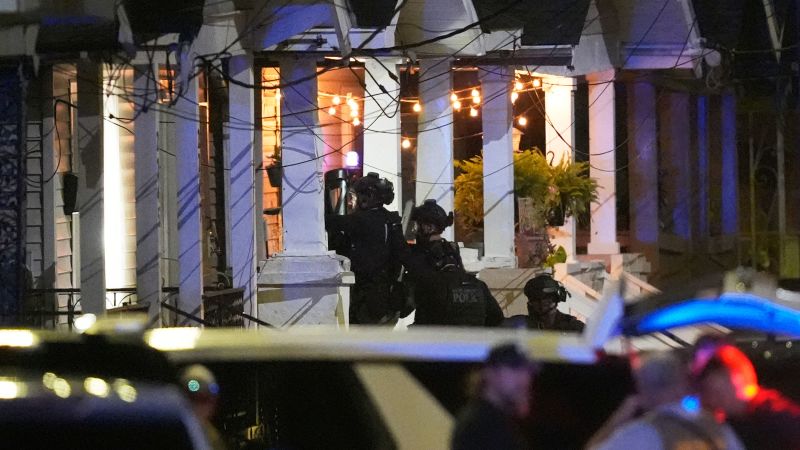Facial Recognition Tech Nabs Escaped Inmates in New Orleans – A Controversial Win?

In a stunning turn of events, facial recognition technology played a crucial role in the swift apprehension of some escaped inmates from a New Orleans jail. Just minutes after authorities received the alarming news that ten prisoners had broken free on Friday morning, two of them were identified via facial recognition cameras in the city’s vibrant French Quarter. This rapid identification led to the immediate arrest of one escapee, showcasing the potential power of this increasingly prevalent technology.
The Escape and the Rapid Response
The escape itself sent shockwaves through the city. Ten inmates managed to breach security at the New Orleans jail, prompting an immediate and widespread manhunt by Louisiana State Police and local law enforcement. The urgency of the situation was palpable, as officials raced against time to locate and apprehend the fugitives before they could disappear further.
Facial Recognition to the Rescue
Within minutes of the escape notification, a breakthrough occurred. Facial recognition cameras, strategically positioned throughout New Orleans, flagged two individuals matching the descriptions of the escaped inmates. The cameras, part of the city's growing surveillance network, instantly alerted authorities to their location in the French Quarter, a popular tourist destination.
One Arrest, the Search Continues
Police responded swiftly to the alert and apprehended one of the escapees shortly after. The rapid arrest demonstrates the effectiveness of facial recognition technology in real-time crime prevention. However, the search for the remaining nine inmates is ongoing, and authorities are utilizing all available resources to ensure their capture.
The Controversy Surrounding Facial Recognition
While the use of facial recognition technology in this instance led to a successful arrest, it also reignites the ongoing debate surrounding its ethical implications and potential for misuse. Critics raise concerns about privacy violations, algorithmic bias, and the potential for mass surveillance. The use of this technology is not without its critics, who argue about the potential for misuse and the erosion of civil liberties. The accuracy of facial recognition systems, particularly when identifying individuals from diverse backgrounds, is also a subject of ongoing scrutiny.
Looking Ahead: Balancing Security and Privacy
The New Orleans incident highlights the complex balance between leveraging technology for public safety and safeguarding individual privacy rights. As facial recognition technology becomes more sophisticated and widespread, it is crucial to establish clear guidelines and regulations to ensure its responsible use. This includes addressing concerns about data security, transparency, and accountability. The incident serves as a reminder that while technology can be a powerful tool for law enforcement, it must be deployed ethically and with careful consideration of its potential impact on society. The future likely holds ongoing discussions and refinements to the policies governing the use of facial recognition, aiming to maximize its benefits while minimizing its risks.






